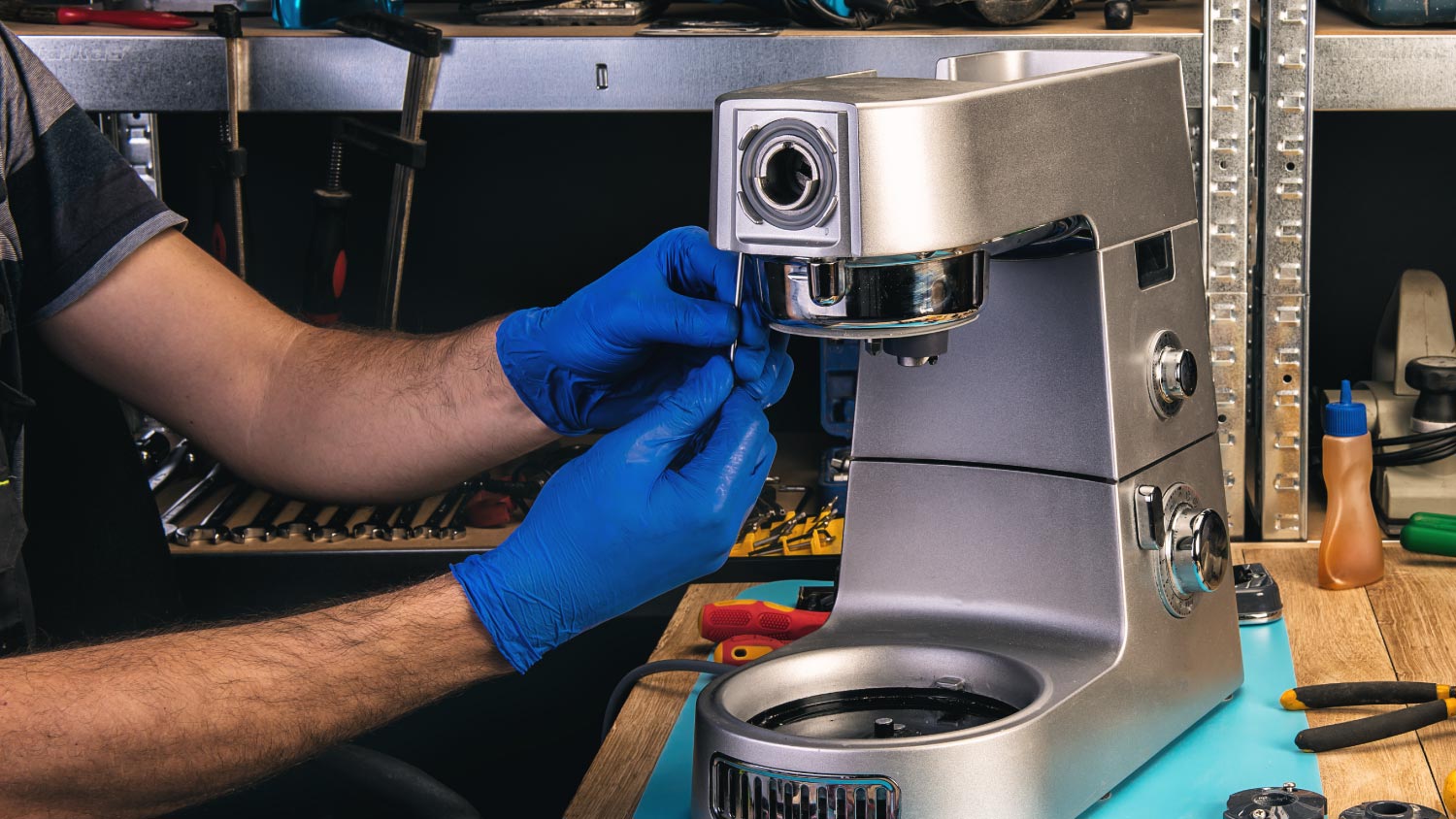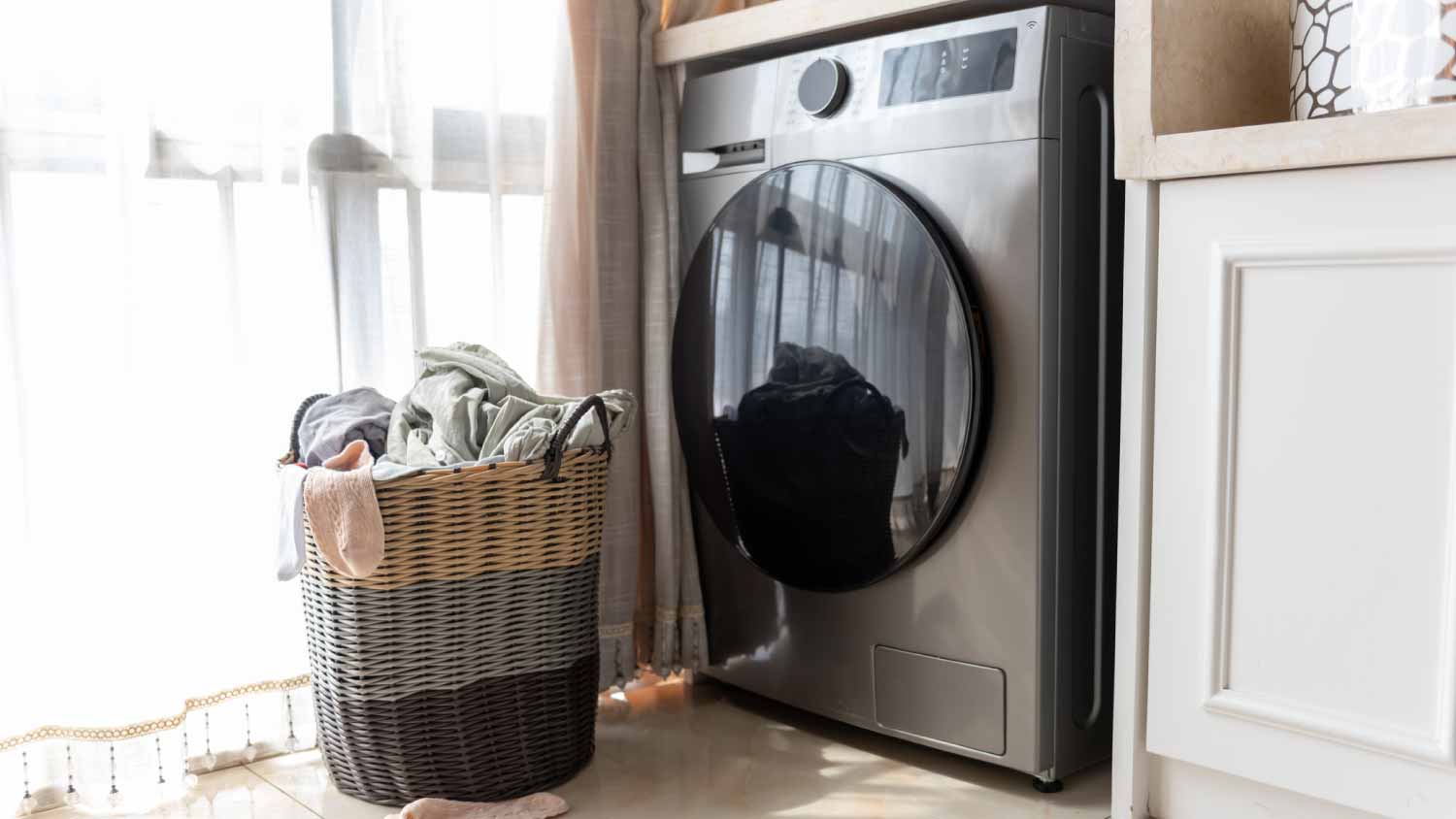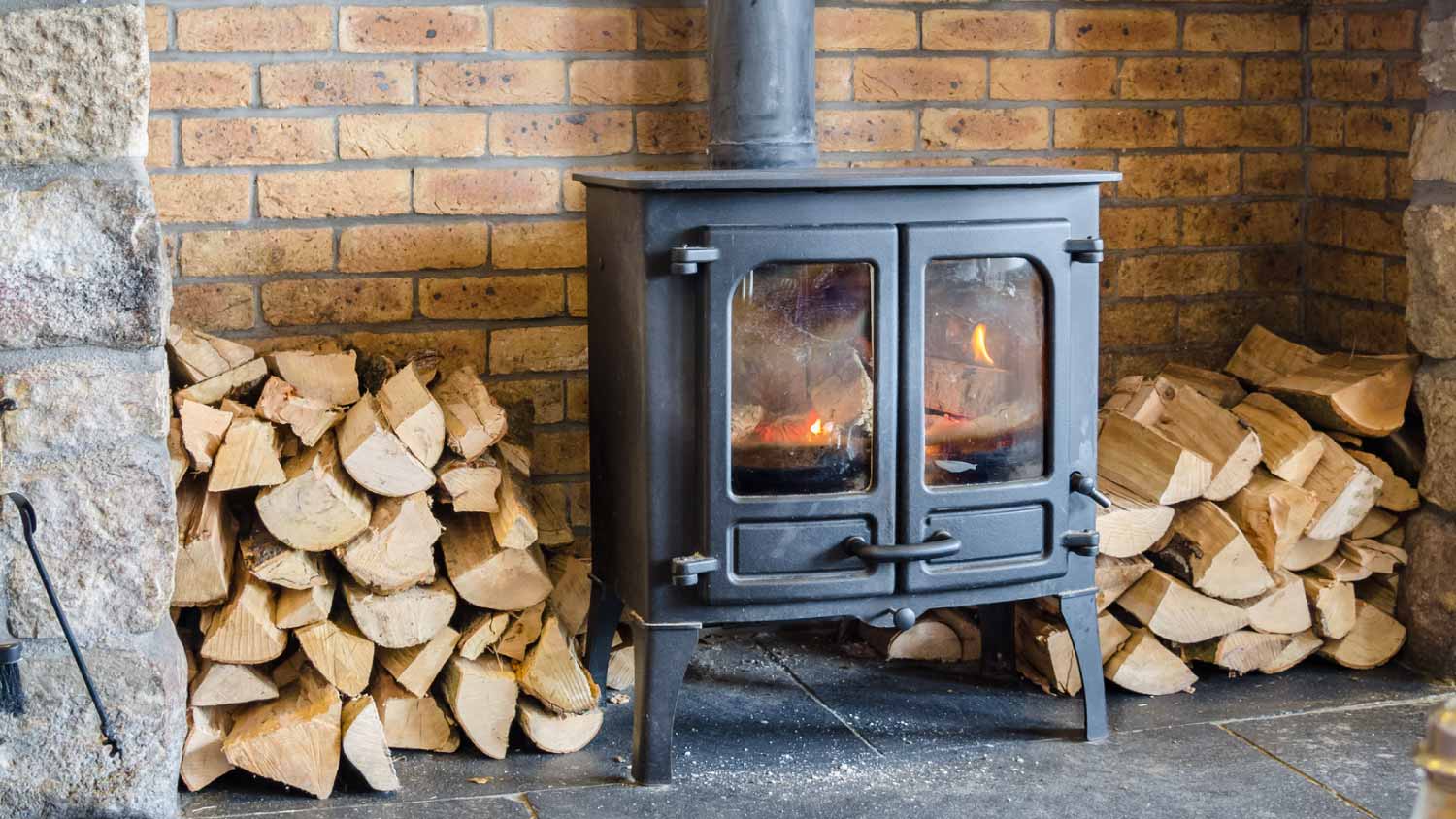Protect Yourself From These 5 Appliance Repair Scams
Because just one bad seed can keep you from trusting the good ones


When your appliance is on the fritz and no longer under warranty, it’s time to call an appliance repair team. Often, this puts you at the mercy of the repair person, who likely knows far more about your HVAC or range hood than you. Understanding the specifics of potential appliance repair scams can help you avoid hiring a dishonest repair company. Here are a few tricks to watch out for and ones that a credible company would never try.
1. The “Cheeky Check” Scam
Never pay for a repair upfront. If your repair technician asks for payment before they complete the job, you may be a victim of a common scam. Under this scam, your repair person might offer compelling reasons why they need upfront payment, such as a backordered or specialty part that’s difficult to source. These are mere excuses. Withhold payment until the end as paying too early could cause your contractor to disappear without doing any work.
2. The “Lying About Licenses” Scam
Reputable professionals are happy to show you their licenses and credentials. Your state electrical regulations will determine the specific licensure required for appliance repairs. Then, you can verify if the company you are researching is indeed qualified and certified using Angi’s licensing tool. Hiring an unlicensed contractor can cost you in the long run. Any pro you work with should have some type of insurance, so ask to see proof before signing any contract.
Jargon phrases used to describe credentials such as “factory-authorized service” or “factory authorized” sound important but don’t actually mean anything. If your handyperson utters these phrases, or worse, claims that no credentials are necessary to complete the repair, opt for another contractor.
Your manufacturer or appliance dealer can help you determine authorized pros for the appliance repair you need.
3. The “Breaker-Breaker” Scam

Under this scam, the repair technician will begin the agreed upon work on your appliance and then alert you to additional significant damage they actually created themselves. To avoid sneaky upcharges concocted by an unsupervised technician, make sure you or another member of your household is present during the service call.
Watch them inspect the appliance, but don’t hover or micromanage. A reputable service pro will be comfortable answering your questions.
4. The “Underestimating the Repairs” Scam
Also referred to as the “getting more than you bargained for'' scam, the repair technician will initially tell you the appliance issue is minor, then confess the damage is worse than anticipated. This kind of scope creep can cost you money and delay the repair. Try to get a firm problem diagnosis during the estimate and a better idea of the repair process, so you know what to expect for signing a contract.
5. The “Total Failure” Scam
What was initially charted as a repair is now a total loss. Under this scam, the appliance repair team charges you for a service call, only to dig a little deeper and determine the appliance is beyond repair. Now, you’re on the hook for the repair charge, plus the price of a new appliance. Ask detailed questions during the estimate and qualifying stage to avoid this. Once the technician inspects the appliance thoroughly, they should provide a cost to repair, including parts and labor.
This is a good time to inquire about the overall health and condition of the appliance. Based on the technician's prior experience, consider whether it's more cost-effective to repair or replace the appliance.
How to Avoid Appliance Repair Scams
Thorough research can help protect you from dishonest contractors and repair professionals. Get at least three estimates before hiring a repair service. Follow these top tips for avoiding contractor issues and finding the right person for the job:
Check online reviews
Verify their licensing and insurance are up to date according to state requirements
Search the professional’s name online to discount any open charges or complaints filed against them
Sign a written detailed contract outlining project details, timelines, responsibilities, and payment terms
Know your numbers: Appliance repair costs $170 on average, with a typical range of $100 and $240. This includes parts and $50 to $150 per hour for professional service.
If You Are a Victim of a Scam...
First, alert your local police to bring awareness to the issue and help prevent it from happening to others. Then, report the scam to the Better Business Bureau using the online Scam Tracker. The Better Business Bureau will investigate the situation, and your report will help inform others of the disreputable contractor.
Unfortunately, you may not be able to get the money back. Most professionals are ethical and play by the rules. But knowledge is power when it comes to homeownership. You need to know the rules, laws, and specific details of a contract to better protect yourself from a potential scam.
Through due diligence, contract comprehension, and a detailed eye for red flags, you can feel empowered and protected when dealing with any contractor or project during an appliance repair.



.jpg?impolicy=leadImage)

- Appliance Repair Companies
- Washing Machine Repair
- Dryer Repair
- Refrigerator Repair
- Dishwasher Repair
- Oven Repair
- Wood & Pellet Stove Repair
- Freezer Repair Services
- Wood Stove Services
- Gas Stove Repair
- Emergency Appliance Repair Companies
- Ice Maker Repair
- Gas Appliance Repair
- GE Appliance Repair
- GE Refrigerator Repair
- GE Dryer Repair
- GE Dishwasher Repair
- GE Washing Machine Repair
- Samsung Appliance Repair
- Samsung Refrigerator Repair
- Samsung Dryer Repair
- Samsung Washer Repair
- Samsung Dishwasher Repair
- Samsung Oven Repair
- Whirlpool Repair
- Whirlpool Refrigerator Repair
- Whirlpool Washer Repair
- Whirlpool Dryer Repair
- Whirlpool Oven Repair
- Maytag Appliance Repair
- Maytag Refrigerator Repair
- Maytag Washer Repair
- Maytag Dryer Repair
- Maytag Dishwasher Repair
- Kitchenaid Appliance Repair
- Kitchenaid Oven Repair
- Kitchenaid Refrigerator Repair
- Kenmore Appliance Repair
- Kenmore Dishwasher Repair
- Kenmore Washer Repair
- Kenmore Dryer Repair
- LG Refrigerator Repair
- Bosch Appliance Repair
- Kenmore Refrigerator Repair
- LG Appliance Repair Services
- GE Microwave Repair
- Electrolux Appliance Repair
- Electrolux Washer Repair
- Kitchenaid Dishwasher Repair Services
- Wood Stove Inspection
- Dishwasher Installation
- Trash Compactor Repair















